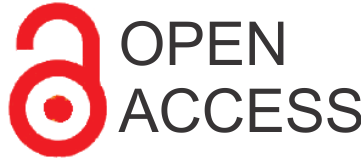Mewujudkan Perilaku Kolekstif;
Pengembangan Pendidikan Akhlak di Kelas dalam Perspektif “Pilihan Rasionalâ€
DOI:
https://doi.org/10.15642/joies.2016.1.1.1-24Keywords:
Rational Choice; Collective Behavior; Akhlak; Analysis of Micro-MacroAbstract
Islamic education aims to establish students` moral, which should be developed in the classroom. Students` behavior is determined by values that understood and maintained together through interaction in the class. Various perspectives on human behavior and actions have been discoursed by experts of Islamic theology, Muslim philosophers, and other scholars, such as al-Mawardi and IbnTaymiyya. This paper will discuss the perspective of Rational Choice in Sociology of Education about the formation of the learners` behavior. According to Rational choice, classroom learning is the accumulation of the goal. Various actions of learners in learning are not only determined by the purpose of learning, but also other purposes, such as the objectives of individual learners. Learners in the class action are also based on the consideration of uses, such as to get high scores or praise. In learning, achievement of learning objectives depends on the ability of learners which lead to a probability, such as the possibility of getting high or low value. Learning is based on rational purpose and usefulness in accordance with the purpose of education, will lead to satisfactory academic results. The individual rational action depends on the perception and recognition of learners. The action was carried out together in the classroom and together will form the desired pattern of actions and behavior. The pattern of actions and behaviors can escalate into patterns of values and morality in relationships in the classroom. Thus, the rational choice theory can be used as the basis of formation of character in a class that is also a reflection of the wider community.
Downloads
References
Anita Woolfolk. Educational Psychology; Active Learning Edition. Terjemahan Indonesia Jilid I. Yogyakarta: Pustaka Pelajar, 2009.
Azra, Azyumardi. Paradigma Baru Pendidikan Nasional: Rekonstruksi dan Demokratisasi, Jakarta: Kompas. 2002.
Bruce Joyce dkk. Models of Teaching. Terjemahan Indonesia Edisi ke-8. Yogyakarta: Pustaka Pelajar, 2009.
Budhy Munawar-Rachman. “Spiritualitas: Pendekatan Baru dalam Beragama†dalam Hasan M. Noer (Edt.) Agama di Tengah Kemelut, Jakarta: Media Cipta. 2001.
Coleman, J.S & Ferraro, T.J. Rational Choice Theory: Advocacy and Critique. London: SAGE Publications. 1992.
----------, Dasar-Dasar Teori Sosial: Foundations of Social Theory, terjemahan oleh Imam Muttaqin dari Foundations of Social Theory, Bandung: Nusa Media, 2011.
Mewujudkan Perilaku Kolektif
Volume 1, Nomor 1, JUNI 2016, JOIES 23
Fraenkel, Jack. R. How to Design and Evaluate Research in Education. The Mcgraw Hill, 2001.
John W. Santrock. Psikologi Pendidikan. Terjemahan Indonesia, Jakarta: Kencana. 2008.
Joyce, B & Weil, M. Models of Teaching. New Jersey: Prentice Hall. 1999.
Juliet Strang, Attitude, Skill, and Knowledge: How to Teach Learning to Learn in The Scondary School. Cambridge: Crownell Press. 2007.
Koesoema A, Doni. Pendidikan Karakter: Strategi Mendidik Anak di Zaman Global. Jakarta: Grasindo. 2010.
Lickona, Thomas. “The Return of Character Education†dalam Journal Citation: Educational Leadership. v51 n3 p6-11 Nov 1993.
Little, Daaniel. Varieties of Social Explanation an Introduction to the Phylosophy of Social Science. Westviews Press, Inc USA,1991.
Mcmillan, J.. dan Sally Schumacher. Research in Education. New York: Longman, 2001.
Makmun, S.A. Psikologi Pendidikan. Bandung: Rosda Karya Remaja. 2003.
Marvin W. Berkowitz. “The Sciens of Character Education†dalam William Damon. Bringing in a New Era in Character Education, California:Hoover Institution Press. 2002.
Mifflen, Frank J., Sosiologi Pendidikan. Bandung: Transito, 1986.
Miller, Mary Therese. Character Education: Managing Responsibilities. New York: Chelsea House. t.th.
Mustofa. H. A. Akhlak Tasawuf. CV. Pustaka Setia, Bandung. 2008.
Poloma , Margaret. Sosiologi Kontemporer. Jakarta: Rajawali Pers, 2000.
Reigeluth, Charles, M. Instructional-Design Theories and Models: An Overview of their Current Status. London: Lawrence ErlBaum Associates Publishers, 1983.
Republik Indonesia, Undang-Undang No. 17 Tahun 2007 tentang Rencana Jangka Panjang Nasional Tahun 2005-2025.
Republik Indonesia, Peraturan Presiden Nomor 5 Tahun 2010 tentang Rencana Pembangunan Jangka Menengah Nasional (RPJMN) tahun 2010-2014.
Ritzer, George dan Douglas J. Goodman. Teori Sosiologi Modern. Terjemahan dari Modern Sociological Theory oleh Alimandan, Edisi ke-6. Jakarta: Kencana. 2005.
Robert L. Solso dkk. Psikologi Kognitif. Jakarta: Erlangga. 2007.
Hanun Asrohah
JOIES, 24 Volume 1, Nomor 1, JUNI 2016
Salim, Agus. Pengantar Sosiologi Mikro. Yogyakarta: Pustaka Pelajar, 2008.
Sanjaya, Wina. Strategi Pembelajaran; Berorientasi Standar Proses Pendidikan. Jakarta: Kencana Prenada Media Group. 2008.
Suparman Syukur. Etika Religius, Yogyakarta: Pustaka Pelajar. 2004.
Syekh Khalid bin Abdurrahman. Cara Islam Mendidik Anak. Jogjakarta: PT. Ad-Dawa, 2006.
Turner, Jonathan H. The Structure of Sociological Theory. California: Wadsworth, Inc., 1991.








